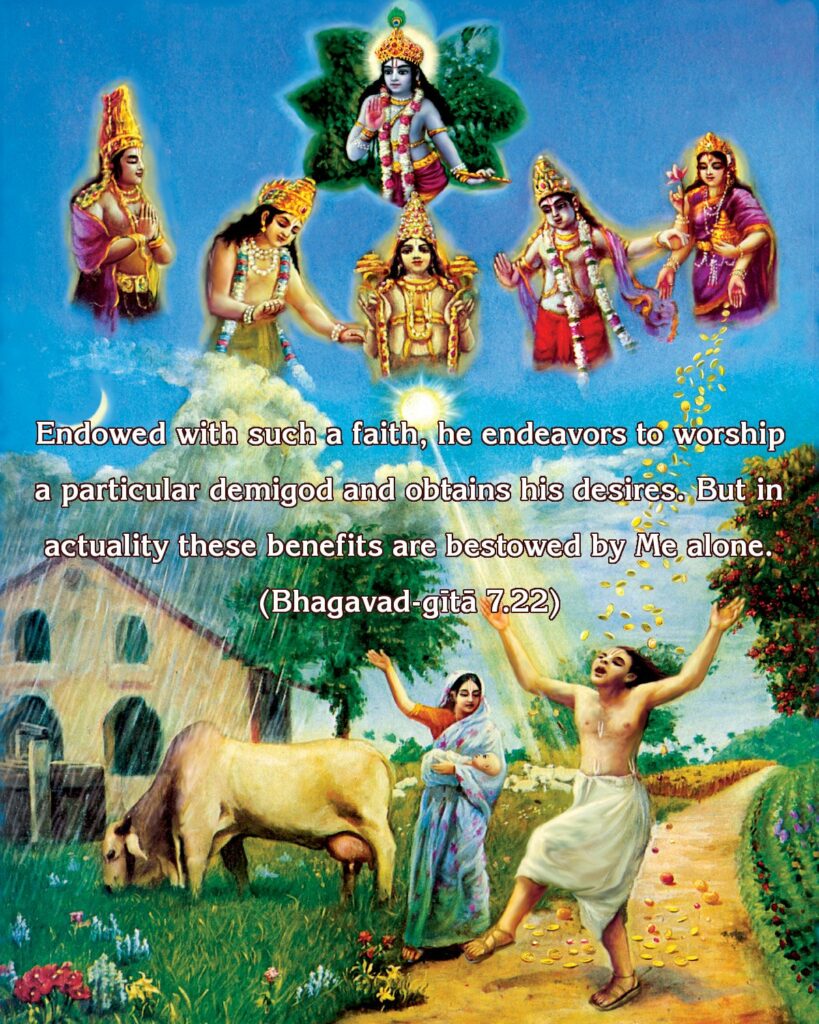स तया श्रद्धया युक्तस्तस्याराधनमीहते |
लभते च तत: कामान्मयैव विहितान्हि तान् || 22||
sa tayā śhraddhayā yuktas tasyārādhanam īhate
labhate cha tataḥ kāmān mayaiva vihitān hi tān
saḥ—he; tayā—with that; śhraddhayā—faith; yuktaḥ—endowed with; tasya—of that; ārādhanam—worship; īhate—tries to engage in; labhate—obtains; cha—and; tataḥ—from that; kāmān—desires; mayā—by me; eva—alone; vihitān—granted; hi—certainly; tān—those
Translation:
Possessed of that faith, he worships that form and from it attains his desires, which are, in reality, granted by Me alone.
Commentary:
Whatever rewards the devotee obtains by faithful worship of the Devas, all of them are ordained by the Lord Himself. So, though the rewards appear to flow from any particular Deity, they have their source in the Lord and are determined by Him alone. The Lord is the highest authority in this universal Government. Indra, Varuna, Vasu, Agni and other Devas are functionaries occupying different positions and wielding different powers. All these are determined by the Lord Himself. These elemental forces act according to His will. They derive their power, position and authority from Him. Their field of work, the nature and extent of their power, what they can do the whole system is ordained by the Lord. So, any gift received from any Deva (Indra, Varuna or Kubera etc.) comes from the Lord and is ordained by Him. The wise man approaches the Lord Himself, and the partially wise seek fulfillment from other Devas who are but agents of the different powers of God Himself.
Question: What does the devotee do?
Answer: He worships the Devas with faith.
Question: What does he obtain by it?
Answer: The fulfillment of his desires.
Question: Who ordains the law of worship and reward?
Answer: The Supreme Being – So, it is from Him that the devotee receives the rewards of his to worship through the medium of different Devas.
Bhagavad Gita: Chapter 7 🔻 (30 Verses)
